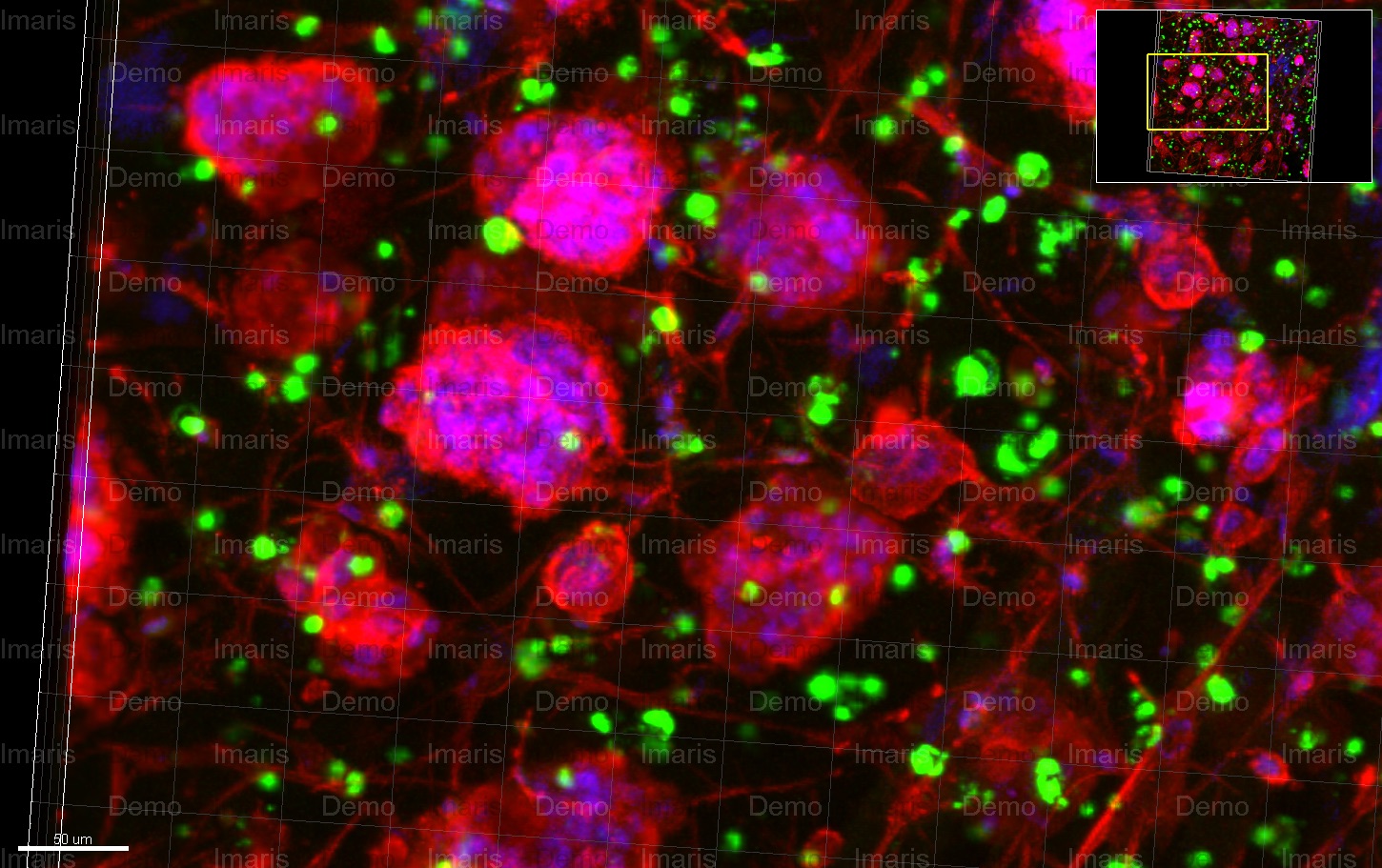Friday, 02 October 2020
Scientists have created a three-dimensional (3D) tumour model in the laboratory for ovarian cancer that could lead to improved understanding and treatment of the disease.
The international team, led by the University of Nottingham and Queen Mary University London have created a multicellular 3D microenvironment that recreates the way tumour cells grow in ovarian cancer and respond to chemotherapy drugs. The research has been published today in Science Advances.
There is a need for improved 3D cancer models to study tumour growth and progression in patients and test responses to new treatments. At present, 90% of successful cancer treatments tested pre-clinically fail in the early phases of clinical trials and less than 5% of oncology drugs are successful in clinical trials. Pre-clinical tests mostly rely on a combination of two-dimensional (2D) lab grown cell cultures and animal models to predict responses to treatment.
However, conventional 2D cell cultures fail to mimic key features of tumour tissues and interspecies differences can result in many successful treatments in animal hosts being ineffective in humans. Consequently, novel experimental 3D cancer models are needed to better recreate the human tumour microenvironment and incorporate patient-specific differences.
 Cancer spheroids made from triple cultures including ovarian cancer cells, endothelial cells, and mesenchymal stem cells growing within the peptide-protein co-assembling material.
Cancer spheroids made from triple cultures including ovarian cancer cells, endothelial cells, and mesenchymal stem cells growing within the peptide-protein co-assembling material.
The new hydrogel biomaterial is made by the co-assembly of peptides with proteins found in ovarian cancer. The mechanism of formation enables the peptides to assemble these proteins into molecular environments, emulating how they are presented in the patient tumour.
Professor Alvaro Mata, from the University of Nottingham’s School of Pharmacy led the study, said: “Bioengineered self-assembling matrices expand our experimental repertoire to study tumour growth and progression in a biologically relevant, yet controlled, manner. In this study we used peptide amphiphiles to co-assemble with extracellular matrix proteins into tuneable 3D models of the tumour microenvironment. The peptide/protein composite matrix was designed to attempt to resemble physical, biomolecular, and cellular features of tumours present in patients. We tested the response of the lab grown tumours using chemotherapeutics to validate the functionality of the multicellular constructs and saw the tumour shrink. This suggests that the new peptide/protein/cellular biomaterial could lead to more effective testing of new drugs and treatments for ovarian cancer.”
Self-assembly is the process by which multiple components can organise into larger well-defined structures. Biological systems rely on this process to controllably assemble molecules and cells into complex and functional tissues with the remarkable properties that we know of such as the capacity to grow, replicate, and perform robust functions.
Associate Professor Daniela Loessner, from Monash University in Australia and co-author of the study says: “Currently, the gold standard for 3D cancer models is the commercially available MatrigelTm, a solubilized basement membrane extracted from mouse sarcoma. A major reason for Matrigel’s popularity is its capacity to enable cell-matrix interactions, which promote the growth of cancer and stromal cells into aggregates known as spheroids. However, it lacks control in mimicking the tumour microenvironment due to its batch variability, undefined composition, and animal origin. These features are important limitations to effectively screen and develop new treatments for cancer. Our research has demonstrated the capacity to engineer a 3D matrix that can serve as a complex, yet controllable, alternative to Matrigel.”
Story credits
More information on the is available from Professor Alvaro Mata on a.mata@nottingham.ac.uk or Jane Icke Media Relations Manager at the University of Nottingham, on 0115 74 84417, jane.icke@nottingham.ac.uk
Notes to editors:
About the University of Nottingham
Ranked 97 in the world and 17th in the UK by the QS World University Rankings, the University of Nottingham is a founding member of Russell Group of research-intensive universities. Studying at the University of Nottingham is a life-changing experience, and we pride ourselves on unlocking the potential of our students. We have a pioneering spirit, expressed in the vision of our founder Sir Jesse Boot, which has seen us lead the way in establishing campuses in China and Malaysia - part of a globally connected network of education, research and industrial engagement.
Nottingham was crowned Sports University of the Year by The Times and Sunday Times Good University Guide 2024 – the third time it has been given the honour since 2018 – and by the Daily Mail University Guide 2024.
The university is among the best universities in the UK for the strength of our research, positioned seventh for research power in the UK according to REF 2021. The birthplace of discoveries such as MRI and ibuprofen, our innovations transform lives and tackle global problems such as sustainable food supplies, ending modern slavery, developing greener transport, and reducing reliance on fossil fuels.
The university is a major employer and industry partner - locally and globally - and our graduates are the third most targeted by the UK's top employers, according to The Graduate Market in 2024 report by High Fliers Research.
We lead the Universities for Nottingham initiative, in partnership with Nottingham Trent University, a pioneering collaboration between the city’s two world-class institutions to improve levels of prosperity, opportunity, sustainability, health and wellbeing for residents in the city and region we are proud to call home.
More news…